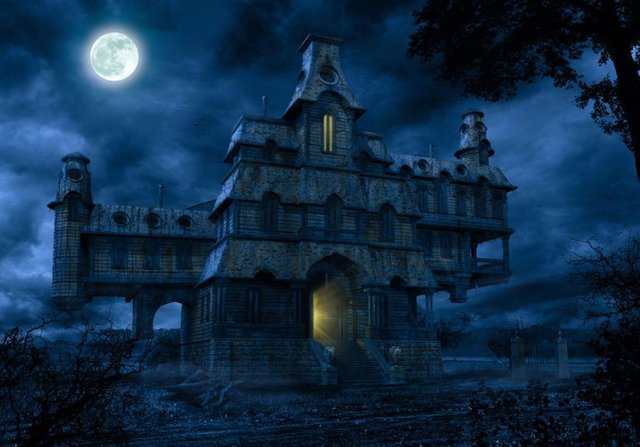6 scientific explanations to ghosts
The number of people who believe in ghosts is striking: a 2014 survey in England found that 52% of the population believed in the supernatural. A 2015 US statistical analysis (Chapman University) found that 40% of Americans are convinced of the existence of spirited homes.
However, there are many logical (and scientific) explanations for which a person might be convinced of having seen a ghost. Let's analyze them together!
- Electromagnetic fields
Neuroscientist Michael Persinger has studied the effects of electromagnetic fields on people for decades, assuming that unconscious perceived electromagnetic impulses could cause hallucinations in people, causing strange patterns of activity in the temporal lobe of the brain. Persinger has studied these effects for a long time, wearing a device called by him by the "Divine Helmet" and discovering that weak magnetic fields applied for 15-30 minutes could give the illusion that there was an invisible presence in the room.
However, subsequent studies contradicted the effectiveness of the experiment, stating that the results were due to the suggestion of the patients and not the action of the magnetic fields.
Although substantial evidence is lacking in this field of investigation, other studies also found unusual electromagnetic activities in environments with the reputation of being infested.
- Infrared
The infrared are very low frequency sounds, not perceivable by the human ear (other animals, like elephants, feel them). These low frequency vibrations can cause discomfort; Some scientists studied the effects of infrared products produced by wind farms or other sources, finding that they can cause disorientation, panic, changes in heart rate and blood pressure, feelings that are easily associated with believing they have seen a ghost. For example, in an article in 1998, engineer Vic Tandy showed how the 19 hz infrared fans produced by a fan of an old lab could cause hallucinations.
Specifically that frequency is indicated by NASA as the resonance frequency of the human eye, and it has caused Tandy's eye vibration to make him think he saw a figure move.
- Muffers
Shane Rogers, a professor of engineering at Clarkson University, spent part of his life visiting the "wretched" houses in search of something not very paranormal: mold growth.
Certain studies indicate that some molds can cause irrational fear, dementia, and hallucinations: the victim might be convinced of ghosts. "I'm a fan of fantasy movies," Rogers said, "And I've always wanted to find out what's really behind the sightings. For now the data collected is not clear, it is difficult to say whether the molds have a role or not in the sightings. But we can often find them in the buildings that people define infested by spirits. "
- Carbon monoxide poisoning
In 1921, a physician named WH Wilmer published a strange story about a strange house in the American Journal of Ophthalmology. The family who had just moved into this house began to report strange phenomena: moving furniture, strange voices in the night, sensation of the presence of invisible ghosts. They even claimed that the spectra prevented him from getting out of bed and weakened them.
Explanation? An old bad stove filled the home of carbon monoxide, a very dangerous chemical that could cause hallucinations and oxygen debt. Having discovered the problem, the stove was repaired and the family returned to normal; However, they had risked really big: carbon monoxide, in fact, can also cause death in excessive concentrations.
Make sure your old stove works well before falling asleep!
- Someone told you he really did
In a 2014 study, psychologists at the University of London looked at volunteers with the video of a person with "psychic powers," who could, according to him, bend a metal key with thought. A part of the volunteers watched the video together with a study participant, who had worked with the researchers and who witnessed the truthfulness of the video (actually a fake).
The subjects of this group were convinced of the video's authenticity much higher than the others; In other words, the witness's influence was enough to convince them.
- We want to believe it
"There is a collateral reason we believe in ghosts," says psychologist Christopher French. "Many people want to believe in an after death. The idea of being mortal does not make us very comfortable. It's much easier to find convincing evidence for something that we want to believe in any case. "





:-|
Congratulations! This post has been upvoted from the communal account, @minnowsupport, by Groot from the Minnow Support Project. It's a witness project run by aggroed, ausbitbank, teamsteem, theprophet0, someguy123, neoxian, followbtcnews/crimsonclad, and netuoso. The goal is to help Steemit grow by supporting Minnows and creating a social network. Please find us in the Peace, Abundance, and Liberty Network (PALnet) Discord Channel. It's a completely public and open space to all members of the Steemit community who voluntarily choose to be there.